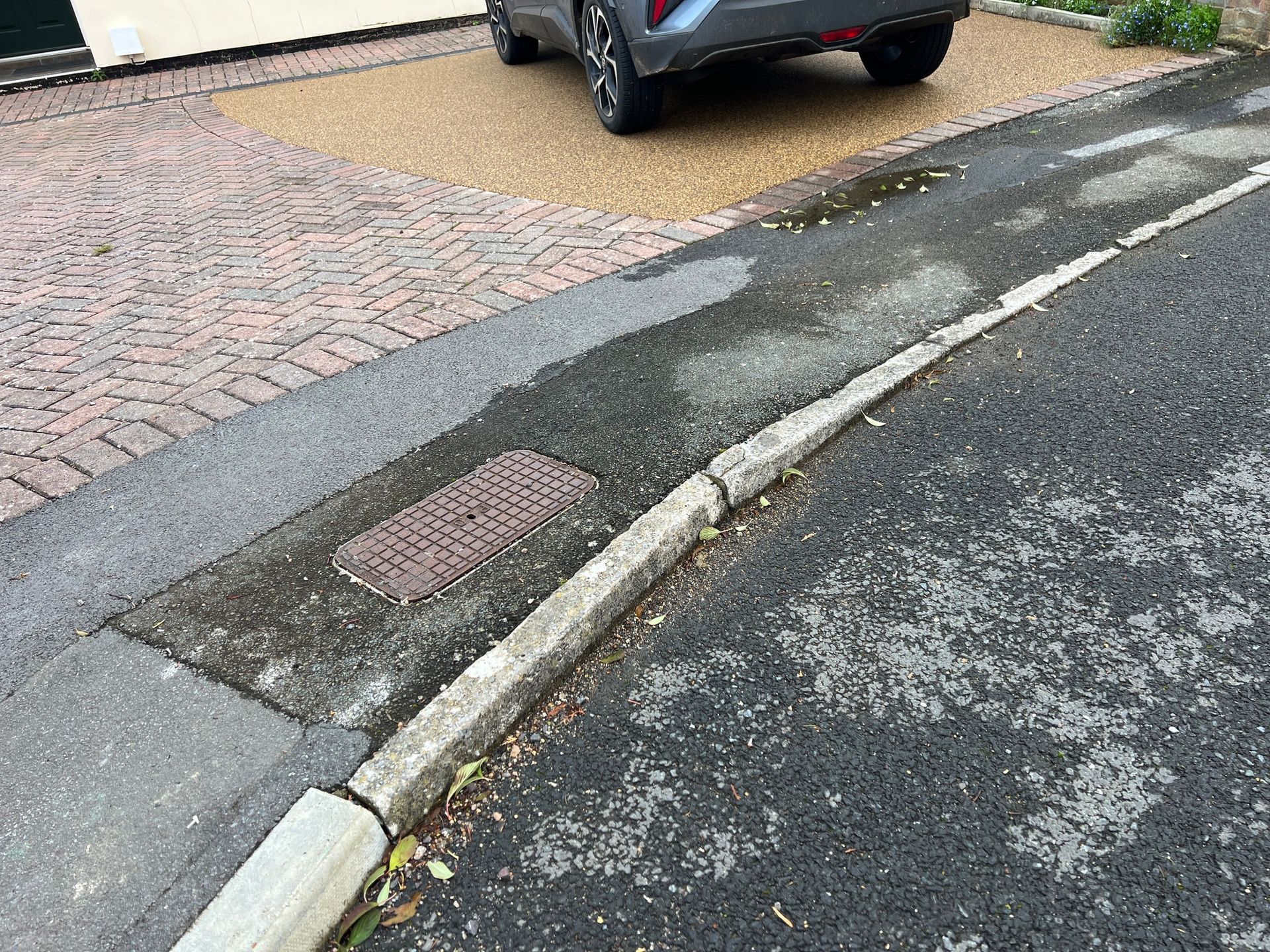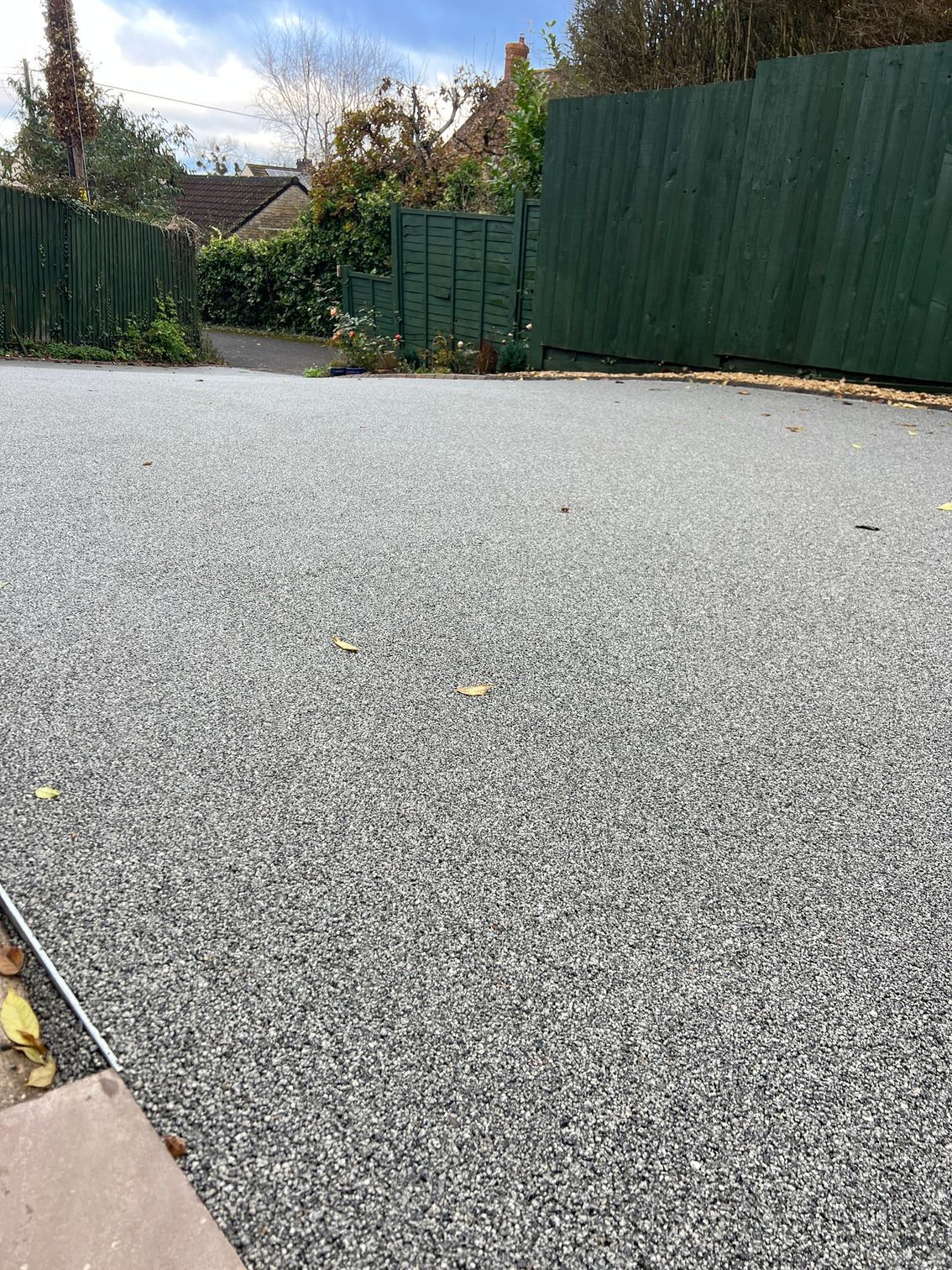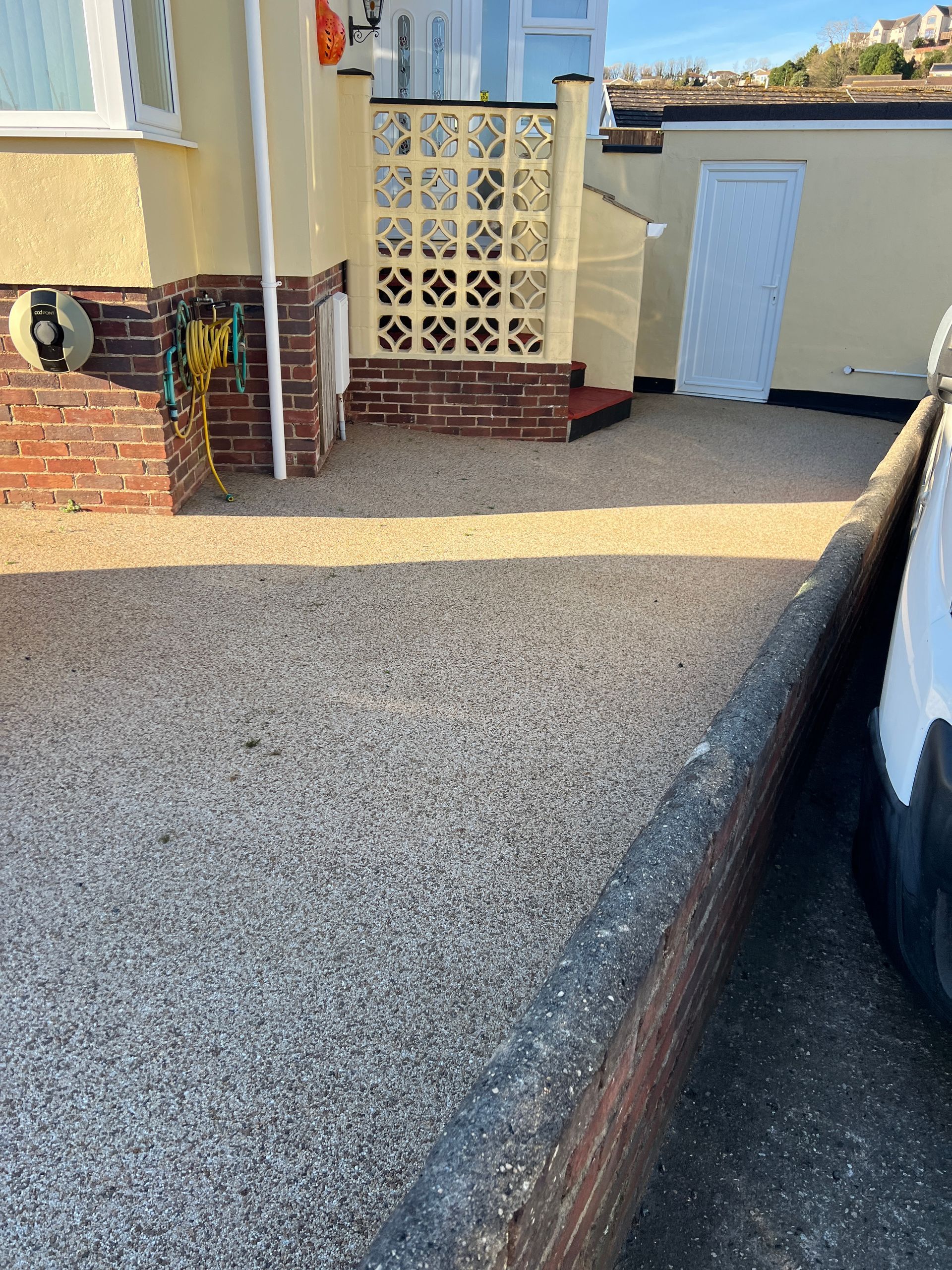Resin Bound Driveways vs. Resin Bonded Driveways: What Is The Difference?
What Is The Difference Between Resin Bound and Resin Bonded Driveways?
Resin-bound and resin-bonded driveways have become more popular as driveway surfacing options because of their sturdiness, attractiveness, and low maintenance requirements. The two names are, however, frequently used interchangeably. In order to help you choose the best driveway for your property, we will examine the main distinctions between resin bound and resin bonded driveways in this blog post.
Put simply, the difference between these two types of driveways comes in the
preparation. A
resin bound driveway would include
mixing the resin and aggregates together, before
applying it smoothly onto the prepared base. A
resin bonded driveway is when resin is applied on the
prepared base, and then
aggregates are placed directly on top.
1. Resin Bound Driveways
Aggregates (such
gravel or
crushed stone) are combined with a
clear resin binder to make
resin-bound driveways. The following are some
essential qualities of resin-bound driveways:
Permeability: A driveway made of resin is permeable, allowing water to seep through the surface. This makes them an environmentally beneficial option because it helps to avoid surface water build-up and lowers the chance of flooding.
Smooth Finish: The mixture of aggregates and resin is trowelled or screeded onto a sturdy base to provide a smooth and seamless finish. As a consequence, the driveway has a beautiful, natural aspect.
Durability and Maintenance-Free: Resin bound driveways are
extremely durable and can sustain
heavy traffic. They also require
little maintenance. They are immune to
oil stains,
UV ray damage, and
cracking. Furthermore, they also need
little upkeep; regular cleaning will be enough to
keep them looking their brand new.
2. Resin Bonded Driveways
Applying a
coating of resin to an
existing surface, such as
concrete or
tarmac, and then
sprinkling loose pebbles on top results in
resin-bonded driveways. Here are some
essential characteristics of resin-bonded driveways:
Non-Permeable: Resin bonded driveways, in contrast to resin bound driveways, are non-permeable, which means that water cannot pass through the surface. To avoid water pooling, additional drainage techniques could be necessary.
Surface Textured and Anti-Slip: The resin-coated surface is
strewn with
loose particles, giving it a
textured appearance. Resin
bonded driveways are a great option for
places where slip resistance is
vital because of the
textured surface's high traction.
3. Differences To Consider
The
following elements should be taken into account while
choosing between resin bound and
resin bonded driveways:
Appearance: Resin bonded driveways provide a textured appearance, whereas resin bound driveways have a smooth and natural-looking surface. Pick the solution that most closely matches the design of your house.
Permeability: A resin bound driveway is the superior option if you value sustainable drainage and wish to reduce surface water run-off.
Existing Surface: Both types of driveways are a good choice for covering existing surfaces because they do not always require excavation or removal, which can save time and money.
Maintenance: Both kinds of driveways require
little upkeep. However, because of their
smooth surface, resin bound roads might need to be
cleaned less frequently.
When determining which
driveway type is ideal for your house, it is essential to understand the
differences between resin bound and resin bonded driveways. While resin bonded driveways offer a
textured finish that improves
already existing surfaces, resin bound driveways offer a
permeable,
smooth, and
durable surface. In order to make an informed choice, take into account your
tastes,
spending limit, and particular needs. Resin bound and resin bonded driveways both offer a
durable and
aesthetically pleasing alternative for
upgrading the entry to your property, regardless of which option you select.
You might also like
Resin Driveways For Life





